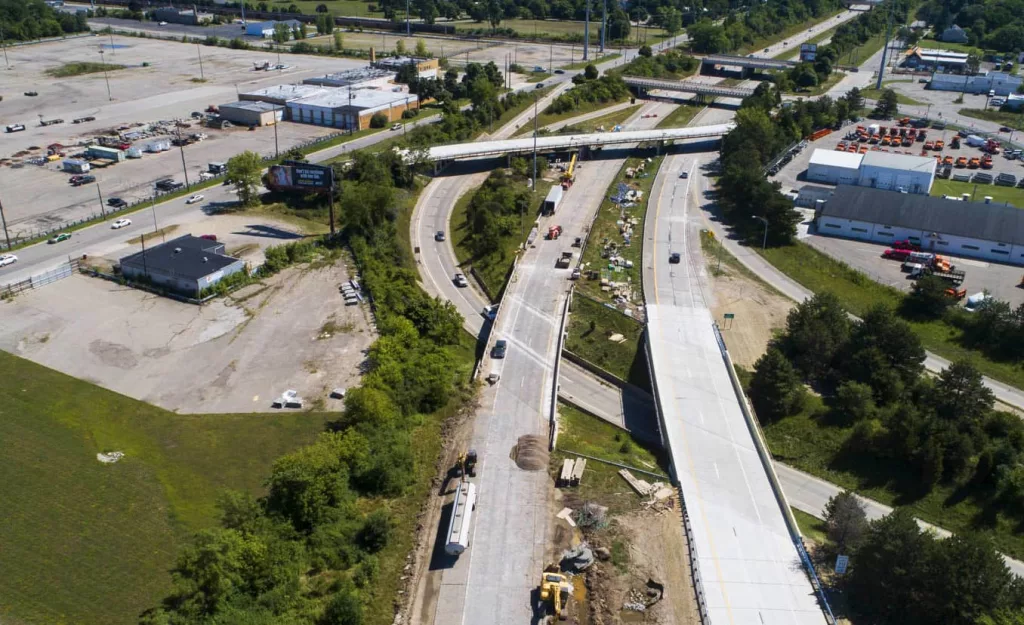Citing freeways that have been held together far too long “with patches and emergency repairs,” Gov. Gretchen Whitmer today has announced the closing on the sale of the first $800-million in Rebuilding Michigan bonds, designed to bring safer, longer-lasting roads to the Great Lakes State.
The governor says that the Michigan Department of Transportation closed today on an $800 million bond issue that marks the first installment in her $3.5 billion Rebuilding Michigan program.
The bonds closed today will cover the cost of rebuilding some of Michigan’s most highly traveled freeways, including a $60 million project in progress on I-496 west of Lansing, as shown in the photo accompanying this story on Moody on the Market. When all of the $3.5 billion bonds are sold over the next few years, they will finance or help accelerate rebuilding or major rehabilitation of 122 major highways across the state.
Whitmer says, “For too long, our freeways have been held together with patches and emergency repairs,” adding, “The Rebuilding Michigan program assures Michiganders across the state that they can drive to work and drop their kids at school on safe and reliable roads for many decades to come. It has also allowed us to start moving dirt this year, without an increase at the gas pump.”
In a unanimous vote on January 30th, the Michigan State Transportation Commission authorized the department to issue and sell $3.5 billion in bonds backed by state trunkline revenues.
An independent analysis from Moody’s Investor Services lent strong support to the bond sale, despite the pandemic, saying, “Michigan’s state trunkline bonds are not susceptible to immediate material credit risks related to coronavirus because of strong coverage of debt service and limits on additional leverage,” adding, “The longer-term impact will depend on both the severity and duration of the crisis.”
The firm emphasized that lagging infrastructure investment exposes Michigan to rising costs and reduced economic competitiveness and observed that Michigan has ranked near the bottom of the 50 states based on infrastructure spending as a share of total state and local expenditures.
Moody’s concluded that the lack of investment has taken a severe toll on the state’s transportation assets.
MDOT Director Paul C. Ajegba says, “Through bonding, we can completely rebuild some important freeways that we otherwise could only afford to resurface,” and adds, “The successful sale of the bonds and positive market reaction also allows us to accelerate some non-freeway projects across the state.”
Total proceeds will be $1.017 billion from the $800 million in bonds closed on today. The all-in true interest costs are 2.727-percent. The maximum annual debt service maintains 6.4 times coverage against revenues, well above the four times coverage required by State Transportation Commission policy.






